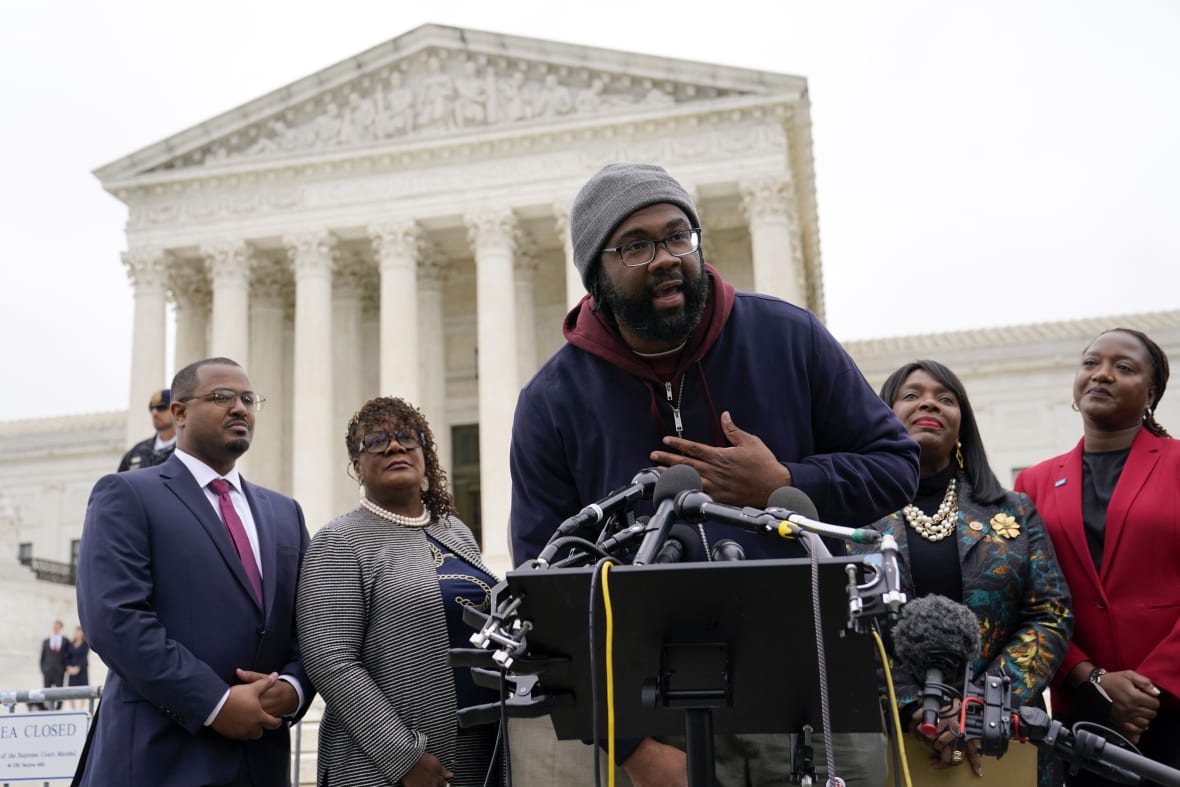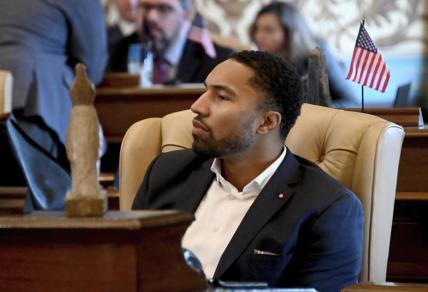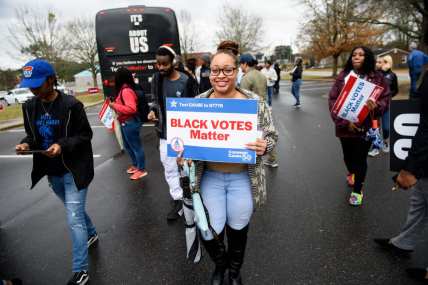Alabama GOP ignores SCOTUS, refuses 2nd Black majority district
In a state where more than one in four residents is Black, the lower court panel had ruled in 2022 that Alabama should have another majority-Black congressional district or something "close to it?”
MONTGOMERY, Ala. (AP) — Alabama Republicans, under orders of the U.S. Supreme Court to redraw congressional districts to give minority voters a greater voice in elections, rejected calls Monday to craft a second majority-Black district and proposed a map that could test what is required by the judges’ directive.
Lawmakers must adopt a new map by Friday after the high court in June affirmed a three-judge panel’s ruling that Alabama’s existing congressional map — with a single Black district out of seven statewide — likely violated the Voting Rights Act. In a state where more than one in four residents is Black, the lower court panel had ruled in 2022 that Alabama should have another majority-Black congressional district or something “close to it” so Black voters have the opportunity to “elect a representative of their choice.”
Republicans, who have been resistant to creating a certain Democratic district, proposed a map that would increase the percentage of Black voters in the 2nd congressional district from about 30% to nearly 42.5%, wagering that will satisfy the court’s directive.
House Speaker Pro Tempore Chris Pringle, who serves as co-chairman of the state redistricting committee, said the proposal complies with the order to provide a district in which Black voters have the “opportunity to elect the representative of their choice.”

“The goal here, for me, was to provide an opportunity for African-Americans to be elected to Congress in the second congressional district,” Pringle said.
However, the National Redistricting Foundation, one of the groups that backed challenges to the Alabama map, called the proposal “shameful” and said it would be challenged.
“It is clear that Alabama Republicans are not serious about doing their job and passing a compliant map, even in light of a landmark Supreme Court decision,” said Marina Jenkins, executive director of the National Redistricting Foundation.
She called that a pattern seen throughout the state’s history “where a predominately white and Republican legislature has never done the right thing on its own, but rather has had to be forced to do so by a court.”
The Permanent Legislative Committee on Reapportionment approved the proposal in a 14-6 vote that fell along party lines. The proposal was introduced as legislation Monday afternoon as lawmakers convened a special session to adopt a new map by a Friday deadline set by the three-judge panel. House Speaker Nathaniel Ledbetter said he believes the new district will be a swing district that could elect either a Democratic candidate or a Republican.
“I think that the models will show that it could go either way, probably. I think all the court’s asked for was a fair chance. I certaintly think that map does it. I don’t think there’s any question about that,” Ledbetter said.
Democrats accused Republicans of rushing the process and thwarting the court’s directive.
Sen. Vivian Davis Figures, a Democrat from Mobile, said the court was clear that the state should create a second majority-Black district or something close to it.
“Forty-two percent is not close to 50. In my opinion 48, 49 is close to 50,” Figures said. She had urged colleagues to adopt a proposal by the plaintiffs in the Supreme Court case that would make the 2nd district 50% Black.
Under the Republican plan, the state would continue to have one majority Black district, which is now represented by Rep. Terri Sewell. The Black voting age population of that district would drop from about 55% to 51.6%
Rep. Chris England, a Democrat from Tuscaloosa, said he also doesn’t think the GOP proposal would satisfy the court’s directive. He said Republican lawmakers pushed through their proposal without a public hearing or producing an analysis of the partisan leanings of the district.
“The map that we adopted, nobody had any input on. There was no public input on it, not subject to a public hearing — and now it’s going to be the map of choice,” England said.
Deuel Ross, a lawyer with the NAACP Legal Defense and Educational Fund who argued the case before the Supreme Court, said they will challenge the proposal if it is enacted by the Alabama Legislature.
“Any plan with a low Black voting age population does not appear to comply with the Court’s instruction,” Ross wrote in an email.
Partisan politics underlies the looming redistricting fight. A higher percentage of Black voters increases the chances that a the seat will switch from GOP to Democratic control.
Pollster Zac McCrary said predicting a district’s partisan leanings depends on a number of metrics, but “getting a district too far below the mid 40s in terms of Black voter composition could certainly open the door for Republicans.”
TheGrio is FREE on your TV via Apple TV, Amazon Fire, Roku, and Android TV. Please download theGrio mobile apps today!
More About:Politics











